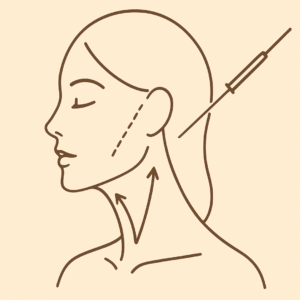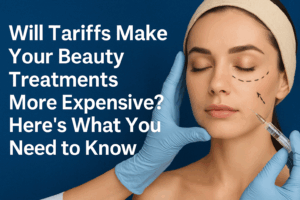Adult acne is a common skin condition that can significantly impact an individual’s self-esteem and skin health. Contrary to the popular belief that acne is solely a teenage affliction, many adults continue to struggle with breakouts well into their 20s, 30s, and beyond. The causes of adult acne differ from acne as a teenager, and offers both natural and medical solutions to manage and treat this persistent issue.
Why Adult Acne Occurs
Understanding the root causes of adult acne is crucial for effective management. Here are some key factors:
- Hormonal Changes: Hormones such as testosterone and cortisol play a significant role in adult acne, especially in women. Fluctuations in these hormones can increase oil production, leading to clogged pores and breakout..
- Stress: Stress can exacerbate acne by boosting cortisol levels, which in turn increases inflammation and oil production.
- Genetic Factors: Genetics can predispose individuals to acne, which may persist or manifest for the first time in adulthood.
- Lifestyle and Environmental Factors: Diet, skincare products, and environmental factors can all impact acne. For example, certain foods like dairy and high-glycemic items may trigger breakouts.
How to Fix Adult Acne
Addressing adult acne requires a multifaceted approach:
- Skincare Routine: A tailored skincare routine is essential. This includes gentle cleansing and the use of non-comedogenic products to avoid clogging pores. Topical treatments such as retinoids and benzoyl peroxide can be effective in reducing acne.
- Diet and Lifestyle Modifications: Identifying dietary triggers and managing stress are crucial. Reducing intake of dairy and high-glycemic foods, along with ensuring adequate sleep, can help manage acne.
Role of Aestheticians
Aestheticians can offer valuable treatments for managing acne:
- Facials: Regular facials can help by deep cleansing and exfoliating the skin, reducing the likelihood of breakouts.
- Natural Skincare: Natural products, which avoid harsh chemicals, can reduce the risk of side effects. Ingredients like tea tree oil, aloe vera, and salicylic acid offer antibacterial and soothing properties.
- LED Light Therapy: This non-invasive treatment uses blue light to target acne-causing bacteria and red light to reduce inflammation and promote healing.
How a Plastic Surgeon Can Help
For more severe cases, medical interventions may be necessary:
- Medical Grade Skincare: Advanced products from medical professionals can offer more potent solutions.
- Cortisone Injections: These can quickly reduce inflammation in severe acne lesions.
- Micro-needling and Other Treatments: Techniques like micro-needling can improve acne scars and overall skin texture. Other options include chemical peels and laser treatments for persistent acne.
Preventing Future Adult Acne Eruptions
Prevention strategies are key to managing adult acne:
- Consistent Skincare Routine: Regular cleansing, moisturizing, and using non-comedogenic products help prevent clogged pores.
- Dietary Adjustments: Reducing dairy and high-glycemic foods can minimize acne triggers.
- Lifestyle Changes: Stress reduction techniques and adequate sleep can help stabilize hormones and reduce acne.
- Avoiding Triggers: Avoid heavy makeup and hair products that can contribute to breakouts. Always remove makeup before bed and use sunscreen daily.
Conclusion
Adult acne is a complex condition that requires a comprehensive approach to treatment and prevention. By understanding the underlying causes and exploring both natural and medical solutions, individuals can effectively manage their acne.
If you would watch my YouTube video where I discuss this topic, CLICK HERE.



Recent Comments